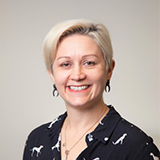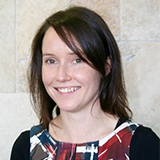Research
Projects conducted under this theme will use the framework developed from Project 1 to implement Routine Outcome Measures and Feedback (ROMF) into Alcohol and Other Drugs (AOD) outpatient services (Project 3) to determine whether standard care and ROM with and without feedback is more efficacious and cost effective than standard care alone.
Project 4 and 5 will inform clinical decision making. Project 4 uses data-linkage to identify the long-term outcomes of different AOD service types and settings.
Project 5 uses machine learning to determine which AOD types and settings have better short- (ROMF) and long-term (via data linkage) outcomes and are more cost effective for people presenting with different types of AOD use, polydrug use and comorbid mental health problems.
Project 3: Efficacy and cost effectiveness of standard care and ROM with and without feedback compared to standard AOD care alone
Led by Professor Peter Kelly, Dr Briony Larance, Mr Robert Stirling, Dr Suzie Hudson, Dr Alison Beck
Services
The Network of Alcohol and Other Drugs Agencies (NADA) Non-Government Organisations (NGO) services
Timeframe
3rd-4th year of the grant
Aim
RCT to determine if standard care and ROM with and without Feedback improves client outcomes and is more cost -effective than standard care alone.
Method
Participants will be recruited from LLW outpatient services and NADA NGO services and will be assessed at service entry, 1, 3, 6 and 12 months follow up.
Evaluation
Stepped Wedge Cluster RCT
Client outcomes
AOD, mental health, quality of life, and treatment adherence.
Staff outcomes
Satisfaction, burnout, and turnover.
Service outcomes
Access (number of clients entering/receiving treatment), efficiency (number of treatment sessions; closed treatment episodes with satisfactory outcomes) and cost-effectiveness
Team
 Professor Peter Kelly |  Dr Briony Larance |
 Dr Suzie Hudson |  Mr Robert Stirling |
 Dr Alison Beck |
Project 4: Use of data linkage to determine the long-term outcomes and cost effectiveness of different AOD service types and settings
Led by Dr Briony Larance, Dr Gabrielle Campbell, Dr Janni Leung
Services
- NADAbase
- Lives Lived Well (LLW)
Timeframe
3rd-4th year of the grant
Aim
To determine the mid to long-term outcomes and cost-effectiveness of different types of AOD services for different types of AOD, polydrug and comorbid mental health presentations.
Method
State and Commonwealth Government agency data including health (hospital, ambulance, AOD Information System), justice (police, prison), social (housing, employment) and mortality data
Will be linked with AOD service and outcome data from LLW (167 AOD programs) and NADAbase (37 NGO AOD services in NSW)
Data registries are available throughout Australia to facilitate linkage, including the pre-linked ADORE system in NSW.
Team
 Dr Briony Larance |  Dr Gabrielle Campbell |
 Dr Janni Leung |
Project 5: Use of machine learning to improve clinician decision making and client outcomes
Led by Associate Professor Gary Chan, Professor Jason Connor, Dr Gabrielle Campbell, Dr Janni Leung
Services
NADAbase, LLW
Timeframe
4th-5th year of the grant
Aim
Machine learning techniques will be applied to ROM and linkage data to determine if this improves the predictive accuracy of clinical decision making and can be used to provide more tailored AOD treatment.
Method
Machine learning will be applied to linked State and Commonwealth Government agency data and AOD clinical service and ROM datasets and 'trained' to determine which AOD presentations (including poly-drug use and comorbid mental health problems) and AOD treatment types/settings are associated with better outcomes.
If these models show reliable predictions, they will be combined into a Clinical Decision Support System (CDSS) to provide more tailored AOD treatment.
A pilot study will be conducted to determine if the CDSS improves client outcomes when applied as an adjunct to normal clinical decision making (using clinical assessments alone).
These adjunctive models will also be informed by traditional linear prediction approaches. If the CDSS is effective, we will apply for further funding to prospectively test its predictive accuracy in a larger study.
Team
 Associate Professor Gary Chan |  Professor Jason Connor |
 Dr Gabrielle Campbell |  Dr Janni Leung |
